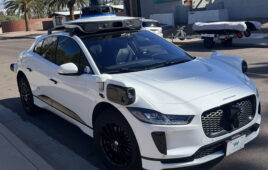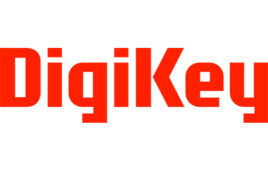Leland Teschler, Executive Editor
[email protected]
On Twitter @DW_LeeTeschler
Teschler on Topic
 The carmaker Volkswagen made headlines recently when the Environmental Protection Agency claimed VW had doctored the engine-control software on almost 500,000 of its diesel-powered vehicles to get around government emissions tests. Specifically, the Agency thinks Volkswagen wrote software so that full emission controls only kick in during tests; during actual driving, the cars can emit NOx at up to 40 times the allowable standard.
The carmaker Volkswagen made headlines recently when the Environmental Protection Agency claimed VW had doctored the engine-control software on almost 500,000 of its diesel-powered vehicles to get around government emissions tests. Specifically, the Agency thinks Volkswagen wrote software so that full emission controls only kick in during tests; during actual driving, the cars can emit NOx at up to 40 times the allowable standard.
There’s a tradeoff between reducing NOx levels and gas mileage. A portion of NOx emissions get taken care of with catalysts in the exhaust system. Gasoline engines also cut NOx by reducing compression ratios and adjusting ignition and valve timing. On diesels, the ability to control compression ratios and timing in the interest of NOx emissions are limited.
Reports are that VW doctored the selective catalytic reduction scheme used to clean up emissions. The scrubbing system sprays a 30% urea/70% water mixture into the diesel exhaust to breakdown NOx. According to Wired Magazine, computer sensors monitored the steering column to look for the vibrations that arise under normal driving. During emissions testing, the wheels of the car move, but the steering wheel doesn’t. Wired reports these conditions were used as a signal to turn the catalytic scrubber up to full power so the car could pass the test.
There’s irony in the idea that a foreign car maker may have been reduced to such mischievous high jinks to get better gas mileage. For many years, there was a myth that European vehicles surpassed those in the U.S. in mpg. The myth was fed by apples-to-oranges comparisons on several levels. For example, sometimes European mpg ratings are based on Imperial gallons and thus look about 20% better than if calculated with U.S. gallons. European NOx emissions regulations historically also have been less stringent than those in the U.S., so the NOx/mpg tradeoffs in Europe have been less onerous. And the 85-hp vehicles common in Europe may be able to sip gas frugally, but so what. They can’t deliver what U.S. customers typically want: A means of transportation that can accelerate smoothly from on-ramps into 65-mph freeway traffic.
The evidence is that European automakers have their share of troubles coaxing out mpg when they try to sell anything but small cars. In 2012, for example, Volvo paid over $5 million in fines for not meeting U.S. CAFE regulations. Jaguar Land Rover chipped in about $10 million that year. Notably, VW has paid no CAFE fines lately. It now looks as though fines in connection with VW’s software could run into the billions.
The VW controversy should also prompt another look at claims by vehicle makers that owners shouldn’t be able to access the software running their own vehicles. The argument involves the 1998 Digital Millennium Copyright Act (DCMA), which makes it illegal for someone to circumvent “technological protection measures” that limit access to copyrighted works — in this case, engine control software. The Library of Congress oversees copyrights and has been entertaining the idea of issuing exemptions to the DCMA so, for example, researchers could examine code for security vulnerabilities.
But vehicle makers don’t even want researchers to examine engine codes, let alone vehicle owners. An industry group called the Alliance of Automobile Manufacturers, which represents several major automakers, including Volkswagen, argues that any DCMA exemptions would create “serious threats to safety and security.”
Reports are that the EPA also opposed making engine codes transparent for research purposes. But the VW engine code debacle illustrates that sometimes the “serious threats to safety and security” can arise from the original programmers rather than from hackers.
Filed Under: Hose • wraps + sleeves, Commentaries • insights • Technical thinking





Tell Us What You Think!